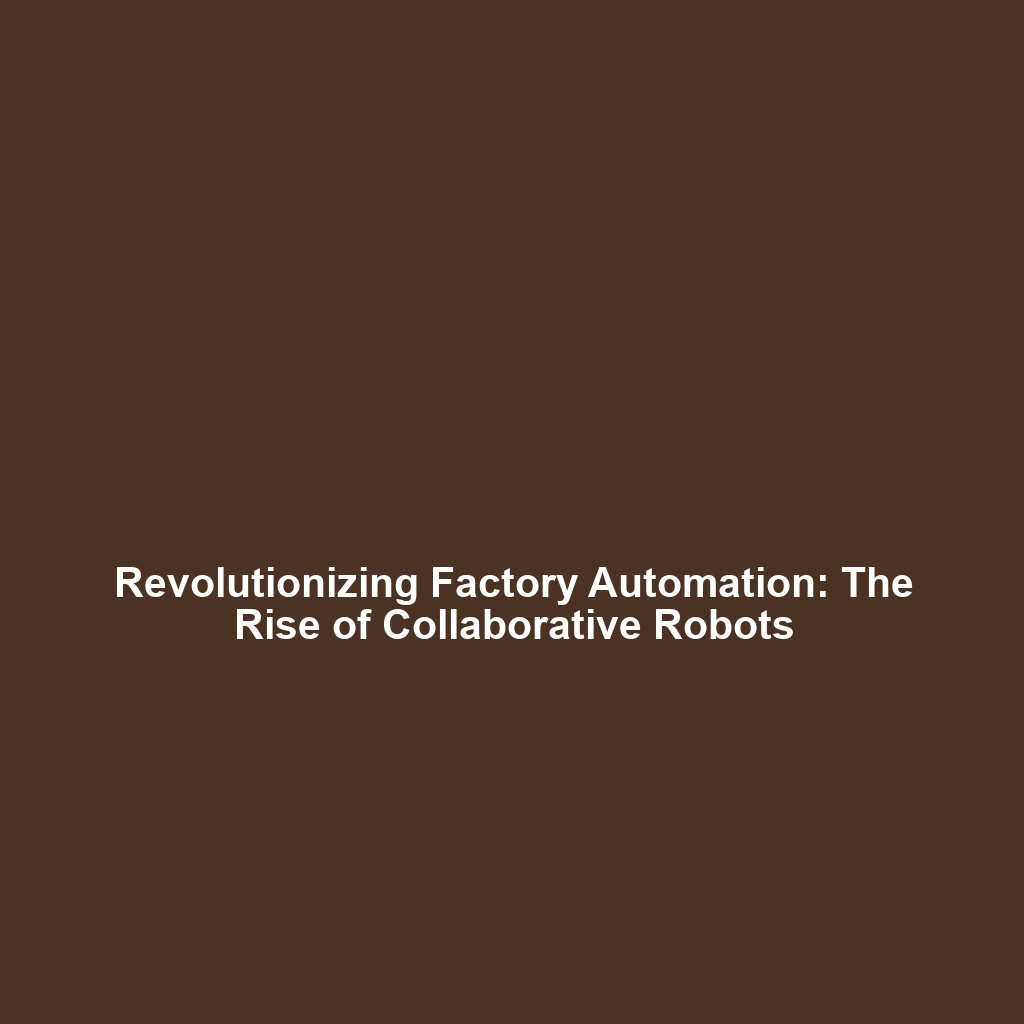Industrial Robots: Pioneering Factory Automation
Industrial robots, particularly collaborative robots (cobots), are transformative forces within the realm of factory automation. Their significance stretches beyond mere mechanization; they embody the essence of autonomous robots by integrating intelligent sensing, adaptive capabilities, and collaboration with humans. This article delves into the importance of industrial robots in enhancing production efficiency, improving safety, and driving innovation within various manufacturing sectors.
Key Concepts
The field of industrial robots encompasses several fundamental concepts that justify their relevance in factory automation:
Definition and Types of Industrial Robots
Industrial robots are programmable machines capable of carrying out a series of tasks autonomously. They include:
- Articulated Robots: These robots have rotary joints and can range from simple to complex configurations.
- Collaborative Robots (Cobots): Designed to work alongside humans, these robots offer enhanced safety features and flexibility.
- Mobile Robots: These robots navigate their environment while performing tasks, making them suitable for dynamic factory settings.
Role in Autonomous Robots
Within the autonomous robots category, industrial robots stand out due to their precision and efficiency. These robots utilize AI algorithms and machine learning to improve task performance, significantly impacting productivity in automated environments.
Applications and Real-World Uses
The applications of industrial robots, particularly collaborative robots in factory automation, are vast and varied. Here are some prominent examples:
- Assembly Lines: Cobots assist in the assembly of complex products where precision and speed are crucial.
- Quality Control: Industrial robots are utilized to perform real-time inspections, ensuring product quality and consistency.
- Packaging: Cobots efficiently handle packaging tasks, reducing human labor and increasing throughput.
These applications highlight how industrial robots enhance productivity in factory automation by optimizing efficiency and quality control.
Current Challenges
While industrial robots have revolutionized factory environments, several challenges remain:
- Integration Issues: Difficulty in integrating cobots with existing workflows can hinder productivity gains.
- Safety Concerns: Ensuring the safety of human workers in environments shared with cobots is crucial.
- High Initial Costs: The investment required for advanced robotic technology can be a barrier for smaller enterprises.
Future Research and Innovations
The future of industrial robots is bright, with numerous innovations on the horizon:
- Advanced AI and Machine Learning: Next-generation algorithms will enhance decision-making capabilities and task efficiency.
- Enhanced Sensory Technology: Developments in sensors will improve robots’ ability to understand their environment, leading to safer interactions with humans.
- Modular Design: Future robots are expected to be more adaptable, allowing for quick reconfiguration for different tasks.
Conclusion
Industrial robots, especially collaborative robots, are redefining the landscape of factory automation and exemplifying the full potential of autonomous robots. As these technologies evolve, they promise increased productivity and safety in manufacturing environments. For those interested in the future of manufacturing, examining the latest trends in industrial robotics is crucial. To learn more, visit our sections on autonomous robotics and industrial automation technologies.
This article is structured to provide comprehensive insights into the role of industrial robots in factory automation, emphasizing their significance in the broader context of autonomous robotics while incorporating SEO best practices.

Leave a Reply